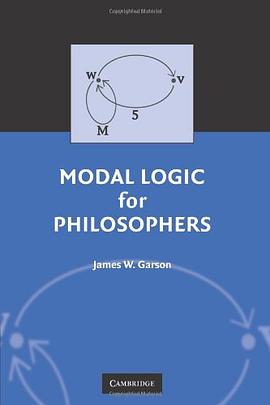

具体描述
The humanity formulation of Kant's Categorical Imperative demands that we treat humanity as an end in itself. Because this principle resonates with currently influential ideals of human rights and dignity, contemporary readers often find it compelling, even if the rest of Kant's moral philosophy leaves them cold. Moreover, some prominent specialists in Kant's ethics recently have turned to the humanity formulation as the most theoretically central and promising principle of Kant's ethics. Nevertheless, despite the intuitive appeal and the increasingly recognized philosophical importance of the humanity formulation, it has received less attention than many other, less central, aspects of Kant's ethics. Richard Dean offers the most sustained and systematic examination of the humanity formulation to date. Dean argues that the 'rational nature' that must be treated as an end in itself is not a minimally rational nature, consisting of the power to set ends or the unrealized capacity to act morally, but instead is the more properly rational nature possessed by someone who gives priority to moral principles over any contrary impulses.This non-standard reading of the humanity formulation provides a firm theoretical foundation for deriving plausible approaches to particular moral issues - and, contrary to first impressions, does not impose moralistic demands to pass judgment on others' character. Dean's reading also enables progress on problems of interest to Kant scholars, such as reconstructing Kant's argument for accepting the humanity formulation as a basic moral principle, and allows for increased understanding of the relationship between Kant's ethics and supposedly Kantian ideas such as 'respect for autonomy'.
作者简介
目录信息
读后感
评分
评分
评分
评分
用户评价
这本书简直是哲学入门的绝佳向导,尤其是对于那些初次接触康德伦理学感到望而生畏的读者。作者的叙事节奏非常抓人,不会让人觉得在阅读一本枯燥的学术专著。他巧妙地将康德那些看似高深莫测的道德概念,通过一系列贴近日常生活的例子和生动的比喻串联起来,使得“绝对命令”不再是抽象的公式,而更像是一种我们内心深处应该遵循的理性呼唤。我尤其欣赏他处理“人是目的而非手段”这一核心论点的方式。他没有简单地重复教科书上的定义,而是深入挖掘了康德是如何构建这一观点的,探讨了自由意志在其中的关键作用。整本书读下来,感觉作者仿佛是一位耐心的导师,手把手地将我们从怀疑的泥潭中拉出,直面康德思想的深刻与力量。对于想要真正理解康德道德哲学的“价值”何在,而非仅仅记住几个术语的读者来说,这本书提供了极为坚实的基础和令人信服的论证路径。它让人明白,康德的理论不是冷冰冰的教条,而是对人类尊严最深刻的捍卫。
评分我必须承认,这本书的学术深度是令人敬佩的,但它的行文风格却出乎意料地保持了极高的可读性。作者展现了对康德文本的炉火纯青的掌握,能够精准地捕捉到那些晦涩段落背后的真正意图,并用现代的语言进行重构,而又不失原作的庄严感。在探讨“自由”与“道德律”的关系时,作者引入了一些非常及时的批判性回应,特别是针对那些指责康德道德观过于僵硬和理想化的声音。通过梳理康德的论证脉络,作者有力地辩护了为何这种“纯粹理性”的道德哲学,恰恰是保障个体价值不受侵犯的最终防线。这种将历史语境与当代辩论相结合的写作手法,让这本书不仅仅是对经典的解读,更是一场富有生命力的哲学对话。对于任何希望在学术前沿探讨康德伦理学当前地位的研究者来说,这本书提供了不可或缺的参照点和强有力的理论支撑。
评分这本书的叙事节奏掌控得近乎完美,它有一种老派学者才有的沉稳,但又带着新锐思想家的敏锐和批判性。作者在引导读者理解康德的“先验演绎”时,采用了非常清晰的逻辑推演,使得原本被认为是哲学界“硬骨头”的部分,也变得逻辑严密、易于消化。我个人最欣赏的一点是,作者对康德哲学中的“张力”的呈现,他毫不回避地指出了康德理论中那些至今仍未完全解决的难题,例如理性在经验世界中的局限性。他没有试图去“美化”或“简化”康德,而是以一种近乎“坦诚相见”的方式,带领我们直面这位伟大哲学家思想的深刻复杂性。这种不回避矛盾、直面挑战的学术态度,让整本书读起来充满了智识上的刺激和愉悦。它不是一本提供标准答案的读物,而是一本激发你提出更深刻问题的催化剂。
评分这本书的结构设计无疑是经过深思熟虑的,它没有采用传统上那种平铺直叙的论证方式,而是采取了一种螺旋上升的解读策略。每一章似乎都在回溯前一章的某些论断,但又不断引入新的维度和更复杂的批判性视角。这种处理方式极大地增强了阅读的粘性,因为你总是在期待下一部分将如何深化或挑战前文的结论。特别是关于动机与结果在康德体系中的权衡部分,作者的处理方式可谓是教科书级别的精妙。他没有陷入那种非此即彼的二元对立,而是细腻地展现了康德思想中内在的张力——即我们如何在一个充满偶然性的世界中,努力实践一种纯粹的、基于责任的道德意志。读完后,我对康德所说的“善良意志”有了更为立体和动态的理解,不再将其视为一种静止的品质,而是一种持续不断、需要终身努力去实现的道德实践状态。这种对复杂性的拥抱和清晰的阐释,使得本书的学术价值和实用价值都得到了完美的统一。
评分这本书在处理康德伦理学中的实践层面时,表现出了令人耳目一新的洞察力。很多关于康德的书籍往往止步于形而上学的建构,但这本书似乎更关注“如何生活在康德的世界里”。作者对康德的“美德伦理”的阐释,特别是他如何将义务论与个体的性格养成联系起来,给了我极大的启发。我发现,通过作者的梳理,康德的道德哲学不再是遥不可及的理想主义,而变成了一种可以操作的实践指南。书中对“最高善”的讨论尤其精彩,它不仅解释了信仰在康德体系中的必要性,还以一种非常巧妙的方式,将道德实践的终极目标与人类的终极希望连接了起来。读完后,我感觉自己对“责任”的理解有了一种质的飞跃,不再将其视为负担,而是一种赋予生命意义的崇高使命。这是一本真正能改变读者看待自己道德选择方式的书籍。
评分 评分 评分 评分 评分相关图书
本站所有内容均为互联网搜索引擎提供的公开搜索信息,本站不存储任何数据与内容,任何内容与数据均与本站无关,如有需要请联系相关搜索引擎包括但不限于百度,google,bing,sogou 等
© 2026 book.wenda123.org All Rights Reserved. 图书目录大全 版权所有




















